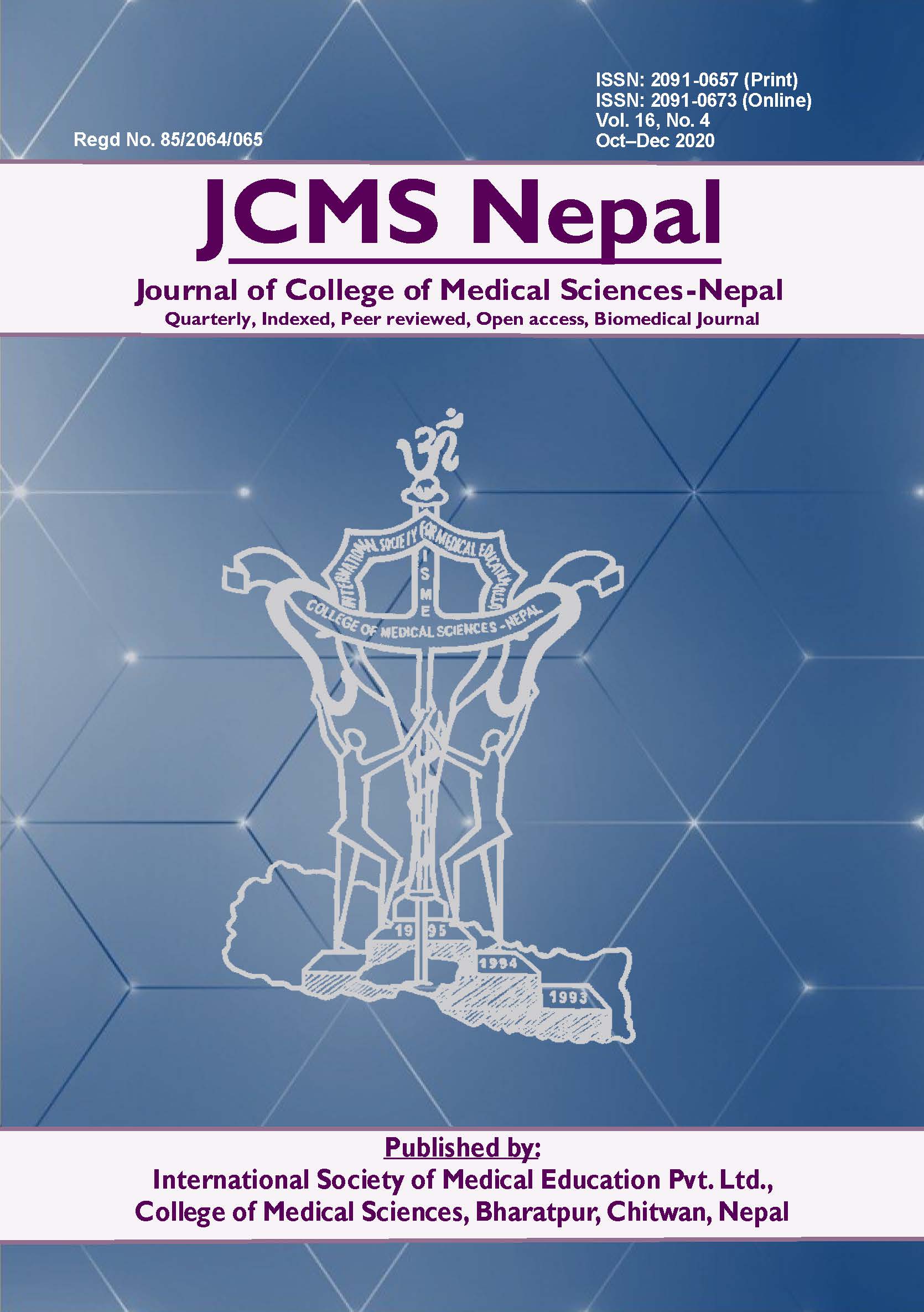Effectiveness of Oral Health Education on Oral Hygiene Knowledge, Practices of Lower Secondary School Children in Kathmandu District
DOI:
https://doi.org/10.3126/jcmsn.v16i4.30256Keywords:
effectiveness; health education; knowledgeAbstract
Background: An important goal of health system is health promotion and disease prevention. In order to enable people to develop personal skills in managing their own oral health, there is a recognized need to deliver oral health information to people during clinical encounters. To ensure positive, long term dental health and hygiene, good oral hygiene practices are necessary from young age. The present study was conducted to assess the effectiveness of oral health education on oral hygiene knowledge, practices of lower secondary school children in Kathmandu district.
Methods: A quasi -experimental study was conducted among lower secondary school children of Kathmandu district. Altogether 400 students participated in the study. Structured questionnaire was used for data collection purpose which contained 15 knowledge questions and 10 practice questions. The data was analysed by using SPSS version 20 software. Multiple linear regression analysis was used at ≤0.05 level of significance.
Results: Altogether 400 students participated in all three visits of the study. The participants were divided into two experimental groups i.e. audio-visual and chart and model groups. The knowledge level increased in both the experimental groups after subsequent health education. Audio-visual method was found to be more effective in improving knowledge (p≤0.001) and practice.
Conclusions: The oral health education was found to be effective in increasing oral health related knowledge and practices of students.
Downloads
Downloads
Published
How to Cite
Issue
Section
License
This license enables reusers to copy and distribute the material in any medium or format in unadapted form only, for noncommercial purposes only, and only so long as attribution is given to the creator.




